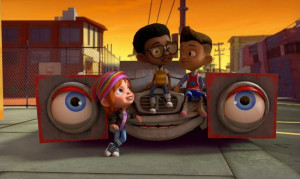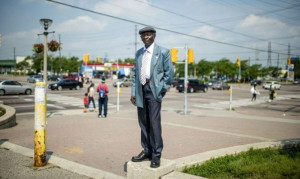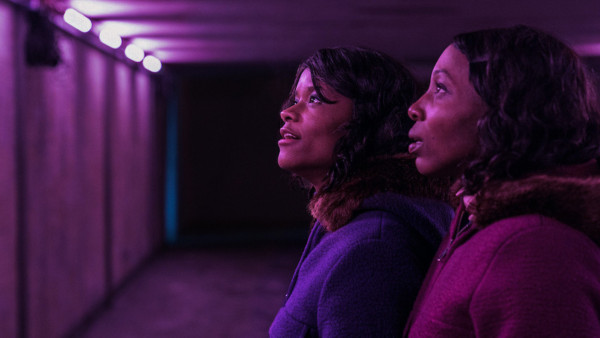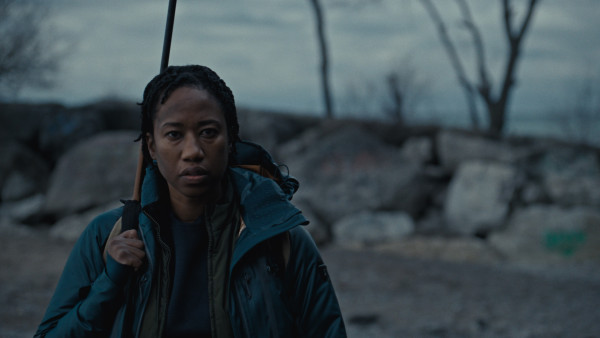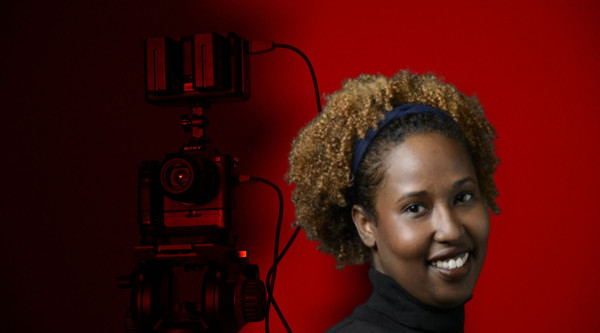She has several film, radio, and television credits to her impressive portfolio, and remains as prolific as ever with the release of Hero. The film cleverly weaves narrative voice over, documentary style footage, and cinematic drama to tell the story of Ulric Cross; a decorated Trinidadian WWII veteran who becomes one of the many Caribbean lawyers drafted into the 1960’s African liberation movement.
In an interview with Frances-Anne, she shared her thoughts about the movement and the challenges of making the film. For Frances-Anne, even though “the ground hard”, mining for truth is essential.
What inspired you to direct a film about Ulric Cross?
Back in Trinidad, both Ulric Cross and a man named Desmond Allum were friends of my family. Both men were lawyers living in an apartment building together. In 2012, Desmond got cancer. The night before he died he called and asked my mother to make a film about Ulric Cross. My mother took on this mission, and actually raised money in order to do it, and eventually I came on board to help her. I initially had no interest in making the film - for two reasons. First, making films is very difficult. Second, I didn’t really know a lot about Ulric’s past other than he was a highly decorated Black soldier in WWII, and I had already made a film about the contributions of Black Caribbean women who served in the second world war. I'm over it. Yes, we have also fought and died for your causes. That's not interesting to me anymore. Once I began to research his life however, I discovered this other story taking place in England after the war. There was a lot of political activity happening right across the world at this time. Imperialism seemed to be collapsing one structure at a time, and one country at a time. We’re constantly fed the narrative about the colonial powers in Europe magnanimously granting independence to colonized peoples, yet rarely hear about colonized people fighting tooth and nail every step of the way for their independence. So that story about how the movement of Pan Africanism was essentially created by Caribbean people like Marcus Garvey and George Padmore, and had led to independence in Africa, was fascinating to me. At that time, Caribbean people were recruited to go to Africa to assist with the transformation process of independence, as very educated professionals. There were a lot of Caribbean professionals who were knowledgeable and ambitious languishing in minor roles in colonial structures still completely dominated by the British. So these professionals jumped at the chance to go on to be part of a transformation process that would change the world. Ulric Cross was one of them. He was ambitious and he wanted to do the right thing. He was frustrated in England by colonialism and racism. That became a story I really wanted to tell.
What lessons do you take personally from his life story?
A couple of things. If I’m going to tell a story through film, it's important for me to see myself in the story. How could Caribbean people at the turn of the century, coming out of an experience like slavery, even have the enormity of vision to imagine a world in which Africa and people of African heritage would be free and independent? Where did that insight come from? Remember, there was no Internet. It helped me to understand my own ambitions. Despite all that they had been taught about the limitations of what they could achieve, to still be able to conceptualize a movement that would kick down the door of colonialism was incredible. The imperialists did everything they could to prevent African liberation. They killed our leaders, undermined our movements, and funded military coups against governments opposed to colonization. That ambitious global vision in the face of the colonial power’s opposition, is something I don't think we as Caribbean people give ourselves enough credit for. The journey that Ulric Cross makes in the film is from the Caribbean, to England, and on to Africa. It literally retraces the journey of the triangular slave trade which is part of our history.
I believe we as Caribbean people are comfortable travelling, even if it's only in our imaginations. We're always restless. There's always that sense of movement and of going somewhere that I think goes back to that journey. So that explains a lot to me about myself as well, because I definitely see myself as a global citizen.
You are a “triple threat” artist who wore several different hats (director, producer and writer) on this film. What were some of the challenges involved for you in getting this film made?
Challenge number one was funding. It’s difficult to raise money for a story that doesn't serve the interests of those who have money. The traditional funders in the West don't have any interest in telling stories about the collapse of an empire. They prefer stories about Queen Elizabeth, Jane Austen, and 19th century period pieces. They're not interested in talking about how European powers murdered our leaders, robbed our nations, and how we are still fighting for liberation. The stories they choose to invest in typically frame Black people as criminals or victims. If not that, as buffoons in comedic vehicles that kind of go nowhere. What they don't want to put money into is stories that have difficult, uncomfortable, but truthful messages for them. Challenge number two was just telling the story. There has not been a lot of documentation on the role of Caribbean people in the global independence movement. Caribbean people tend to see themselves in a very limited sense. The role of all those intellectuals from CLR James, George Padmore, and Ulric Cross, is relatively unknown. Caribbean professionals were brought into Africa as attorney generals and chief justice’s to rewrite constitutions in key leadership roles. But that story has to be researched because it hasn’t been shared. So just actually finding the story, then finding a way to tell it so it would be engaging for audiences were the really big challenges.
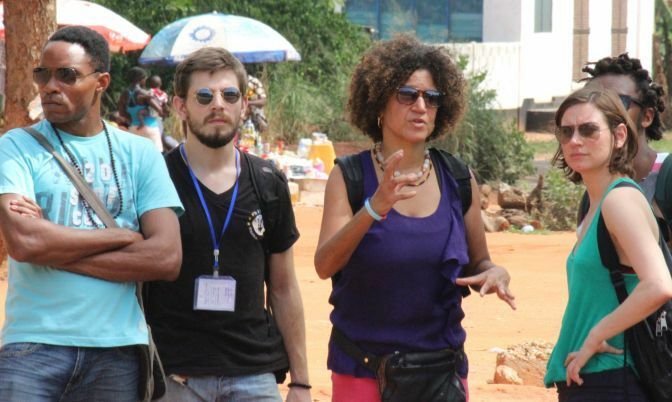
The idea of “mother country” and being a proud colonialist is a recurring theme throughout the film and is a starting point for the journey of Ulric Cross. Why was it important for you to lay out the mentality of colonized people in the Caribbean at the time, and do you think that way of thinking still exists among African/Caribbean peoples today?
The brainwashing that causes people to believe that they’re inferior, or can never be the equivalent of white people, is a system of control so important to understand. The roots of it are fundamentally in economic policy. Wanting someone else’s land. Wanting control over other people for free slave labour. The way they're going to do that is by brainwashing you. To “emancipate yourself from mental slavery” you must understand how the wheels of capitalism operate through colonialism. When I first started this film people would ask me what it’s about, and I'd say capitalism. It was really important for me to have that analysis in the film in a way that was interesting. I do think that mentality still exists. I'm amazed by what's happened in the last year or two in terms of people waking up and having a consciousness of oppression. It’s almost trendy now. It's almost mainstream to the point where there's an actual battle going on between these two ideologies that is out in the open. Growing up in Trinidad, there were people in my family who would say things like “you know we're not African”, because there was no education or analysis around where we came from. The other side of the coin were people like Ulric Cross who were doing amazing things but kept it secret. You did not talk about your consciousness because your survival depended on it. So I think that's important to understand and to realize it still persists.
I believe colourism as a byproduct of colonialism is alluded to in your film, starting with Ulric’s description of his aunt having “light eyes and skin so all the men wanted her” and reflected in the White partners and wives of many of the Caribbean men in the film. Was that an intentional representation of the effects of colonialism, or was it just coincidence?
Absolutely. It was intentional to show that the more you were able to behave, look like, and act like White people, the less of a threat you were perceived to be. That perception was seen as something for Black people to aspire to at the time. I wanted to say right up front that dark skinned men who chose light skin women, chose them for that very same reason. Actually, I think to this day light skinned women are more attractive to Black men. I was really in a quandary about how deep to go into that because it would have taken the story on a completely different path. Of course, they were very incredible women who were political activists, feminists and so forth. I mean they were very interesting women, but they were still White.
In the film you touch on the anti-immigrationist, nationalist fervor sweeping across Britain after WWII. Do you see a parallel between what was happening then in Britain, and the nationalist right wing movements in North America, Europe and Brazil? What do you think drives these sorts of movements?
Economic greed. That's really important to understand. It’s Capitalism. That’s why nationalists don’t like things like healthcare and democracy. They see that as not being in their interests. These people have deluded themselves into thinking that they're better than other people who are less deserving of human rights than they are. “These people are taking our jobs”. “Keep these immigrants out because there are too many of them.” It’s definitely happening right now. You can see it in England with Brexit. What they're feeding into there is the fear that British working class people are losing their jobs and personal safety because of immigration. It’s exactly what Ulric Cross was experiencing in 1950’s England. Black people and other People of Color were coming to Britain and experiencing all the same nationalist paranoia. They never gave them* passports. Their children who were born in the country were not allowed to become citizens. All of that is only coming to light now. Only now is it a scandal. That’s why people like CLR James and George Padmore were about human liberation. That meant overthrowing the class structure. Not to leave a vacuum, but to empower people. That's something that I think is just such a vital issue right now everywhere.
(Writer’s note: Windrush generation)*
His reading of Hitler’s “Mein Kampf” inspired Ulric Cross to join the British military to fight against the rise of Fascism against a man who believed “Negro peoples had no native culture.” Ironically, many of those from the Caribbean who went to fight for, what they believed, was their “mother nation” (Britain), rejected any association to Africa. Do you see your work as both a director of film, and as director of The CaribbeanTales International Film Festival, as a way to reclaim your connection to culture and history?
The short answer is yes. Miss Lou used to say "you've got to know where you come from to know where you're going." She also used to say "the ground hard." So you have to dig into the earth and become a kind of archeologist of your own self because that information was not given to us. Then you have to raise money in an environment where there's limited money to help you do that. You often have to find your audiences by yourself and distribute it by yourself too, because there's no help for that either. So when you want to tell a story it can become very complicated. “The ground hard.”
Byron Armstrong is a freelance writer and lifelong Torontonian, raised in Jane-Finch and living downtown.
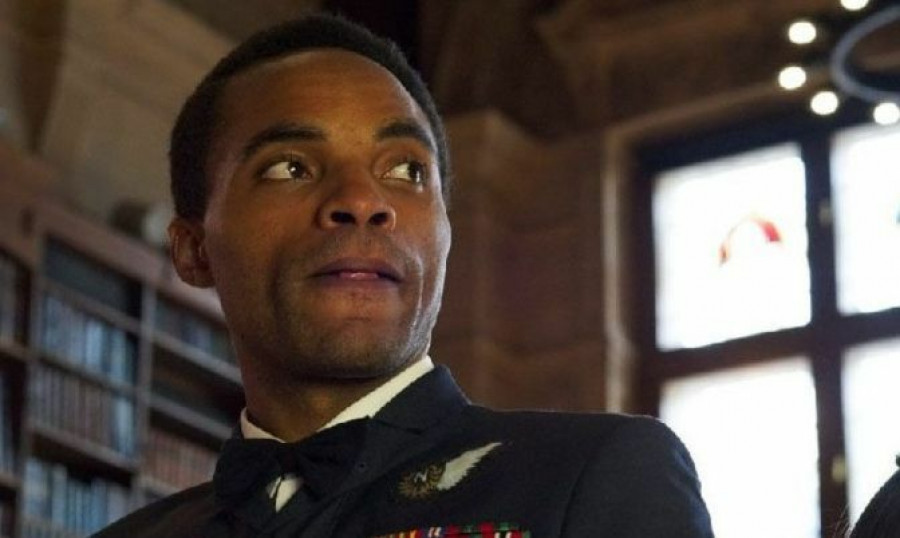
 By
By 




